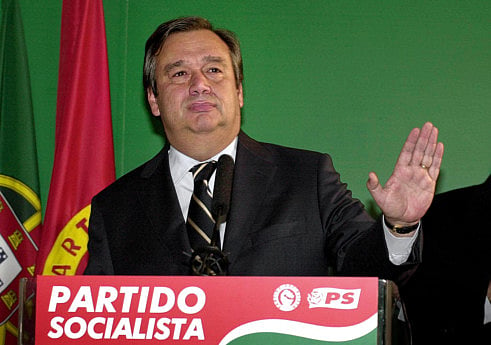December 17, 2001: Portuguese PM resigns
Today in History: December 17, 2001: Portuguese prime minister resigns after poll rout

Portuguese prime minister resigns after poll rout
2001 - Portuguese Prime Minister Antonio Guterres stepped down, accepting responsibility for his Socialist Party’s worst drubbing in a decade at the hands of the centre-right opposition in municipal polls.
President Jorge Sampaio accepted the resignation of Guterres, a day after voters punished the Socialist Party for its perceived failure to deal with the economic crisis.
“I have tendered my resignation to the president of the republic,” Guterres said as he left a 40-minute meeting at the presidential palace.
Sampaio is now expected to consult with all political parties before deciding whether to name a new prime minister or dissolve parliament and call new legislative elections. Under the constitution, the elections must be held within 80 days of the dissolution of parliament.
December 17
1903 - Orville and Wilbur Wright make the first successful powered airplane flight near Kitty Hawk, North Carolina.
1908 - The Ottoman Parliament holds first meeting.
1922 - The last British troops leave the Irish Free State.
1941 - Japanese troops begin invasion of North Borneo in Second World War.
1948 - Dutch attack Indonesia, invade the capital Yogyakarta and arrest President Sukarno.
1957 - The US successfully test-fires the Atlas intercontinental ballistic missile for the first time.
1961 - A fire sweeps through a circus tent at Niteroi, a suburb of Rio de Janeiro, Brazil, killing 323.
1967 - Australian Prime Minister Harold Holt disappears while swimming at Portsea, Victoria.
1971 - India and Pakistan end a two-week war in East Pakistan, now Bangladesh.
1985 - Pakistan and India agree not to attack each other’s nuclear sites.
1989 - Conservative candidate Fernando Collor de Mello appears set for a narrow victory in Brazil’s presidential election.
1994 - South Korean President Kim Young-sam names Lee Hong-koo as his new Prime Minister.
1995 - Elections in Russia give the parliamentary majority to communists and their allies.
1997 - Thirty-four countries sign a treaty aimed at eradicating bribery in international business.
2000 - US President-elect George W. Bush names retired General Colin Powell as Secretary of State.
2002 - The Congolese government and the country’s main rebel groups sign a peace accord in Pretoria, South Africa.
2006 - Gunmen in Iraqi army uniforms burst into Red Crescent offices in Baghdad and kidnap more than two dozen people.
2010 - Mohammad Bu Azizi immolates himself in Sidi Bouzid in protest against his vegetable cart’s confiscation, which sparked a revolution in Tunisia.
2012 - The UAE and the Russian Federation sign an agreement on the development and use of civilian nuclear power.
2013 - Germany’s parliament elects Angela Merkel as Chancellor for a third term.
2015 - Jose Mourinho is sacked as manager of Chelsea football club.
Sign up for the Daily Briefing
Get the latest news and updates straight to your inbox
Network Links
GN StoreDownload our app
© Al Nisr Publishing LLC 2026. All rights reserved.